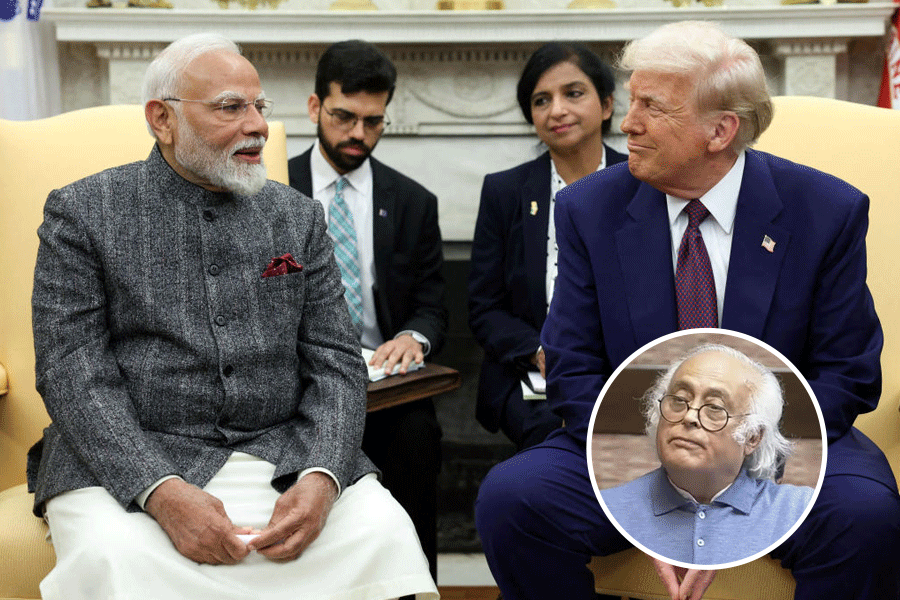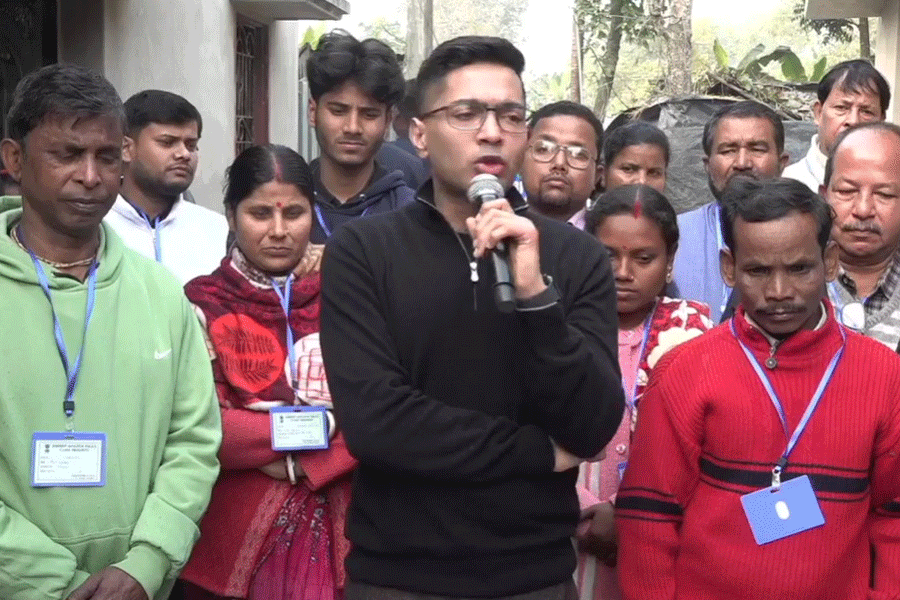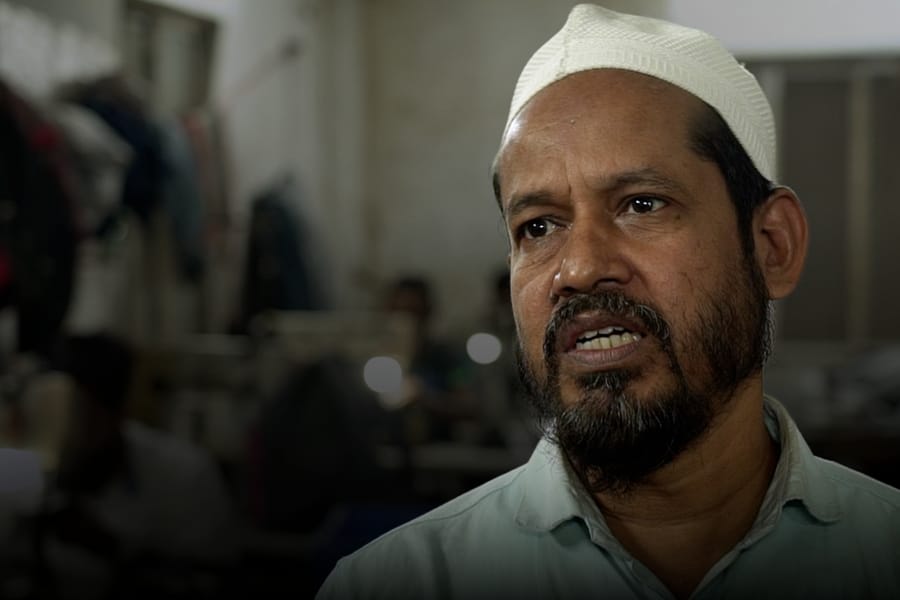 |
| Yogendra Yadav at an election campaign rally in Gurgaon on Wednesday. Picture by Rajesh Kumar |
Gurgaon, April 3: Yogendra Yadav is telling a donkey story in buffalo country.
The Aam Aadmi Party (AAP) ideologue and Gurgaon candidate explains to a group why the farmer’s donkey refused the offer made by an ox to break free of drudgery.
“The ox tells the donkey that at night, he would cut the rope around the donkey’s legs. ‘You will be free and your master will not come to know’, the ox told the donkey,” says Yadav, pausing for the right effect.
“The donkey refuses the offer. Do you know why?” he asks and voters sitting on chairs wait for the answer. “The donkey says that his master touches his feet every night while tying him up. ‘This overwhelms me with kindness and I forgive all his sins’, the donkey told the ox,” adds the bearded political scientist.
Fable retold, it is time for the moral of the story: “Politicians come every five years and touch your feet, but only to bind you for the next five years.”
Yadav tells the audience that they would be like the donkey if they elect sitting MP Rao Inderjit Singh, who quit the Congress to join the BJP, or any other established politician.
The tale wins instant applause. In Esop (employee stock option plan) territory, Aesop-like fables do click.
But 20 kilometres away, where Gurgaon’s steel-and-glass high-rises give way to rugged hinterland, the suave Yadav’s story-telling skills do not appear to have found many takers yet.
Belying the new economy glitz that has come to be associated with Gurgaon, more than 80 per cent of the constituency is rural where clan and community ties outweigh the wisdom of fables.
“Yogendra is my relative. My sister is married in Saharwas (Yadav’s native village) in Rewari (which falls in the Gurgaon seat). I told his family members to caution him against playing a vote-spoiler. We want to defeat the Congress this time,” says Lal Singh of Mohammadpur-Ahir village. Lal Singh belongs to the Ahir caste, popularly known as Yadavs, which is dominant in Gurgaon though not in the entire Haryana.
Haryana’s Gurgaon-Rewari belt is known as “Ahir land” because of the sizeable population of Ahirs. All the three key candidates - Yogendra, BJP’s Rao Inderjit Singh and Dharampal Yadav of the Congress - are Ahirs.
Rao Inderjit, a sworn enemy of Haryana chief minister Bhupinder Singh Hooda, won two consecutive terms on a Congress ticket before he revolted.
Yogendra opted for Gurgaon, presuming perhaps that the AAP effect and his personal image would fetch him the urban votes while his Ahir identity would sway the rural electorate.
For the time being, Rao Inderjit appears to be occupying the Ahir space.
“He (Yogendra) is a professor. He should teach and not get in politics,” says Surender Singh, beyond the Taudu market, laying stress on the need for a strong Ahir leader to represent the community against the dominant Jats.
Ahirs in Haryana, unlike their Yadav counterparts in Uttar Pradesh and Bihar, are socially as well as economically strong. But numerically, the Jats leave the
Ahirs far behind and dominate power politics in Haryana. Chief minister Hooda and his predecessor Om Prakash Chautala are Jats.
Lal Singh accuses the AAP of making a blunder in Delhi by taking support of the Congress. “They fought against the Congress and later took the party’s support. This is opportunism.”
Rao Inderjit’s defection on poll-eve looks to be working to his advantage. Many Ahirs feel that Inderjit is being liked over others since he has chosen to join the BJP. “Biradari se zyada Modi ke liye vote hai”, (More than caste, it is a vote for Modi),” says Bhupinder Yadav, another voter.
“We held a panchayat and asked Rao Inderjit to leave the Congress and join the BJP,” adds Lal Chand Arya, a retired soldier, taking a puff on the hookah outside his Kalwadi village. The hookah and buffalo are essentials in every household in this region.
Arya claims a wave is blowing in favour of Modi across Haryana and hence, Rao Inderjit is the favourite. “Modi can only save the country,” Arya says and a dozen others sharing the hookah nod in agreement.
Aware perhaps that he was not the quintessential Ahir suited for the heartland, Yogendra and his team are focusing on two particular areas - the urban segments where the slogan of “clean politics” excites professionals working in the steel-and-glass edifices and the rural Mewat region, where Muslims form 90 per cent of the population.
But the Indian National Lok Dal (INLD) has fielded Zakir Hussain, who is known as “Mewat ka bachha” (Mewat’s son). Many Muslims feel he will take away the lion’s share of the minority votes. The Congress is expected to be the next favourite and whatever remains will be picked up the “broom” (the AAP symbol, suggests conversations with several voters.
But a fable that connects across borders and barriers should keep up the hopes of Yogendra. The tale features neither a donkey nor a buffalo but a tortoise and a hare.












